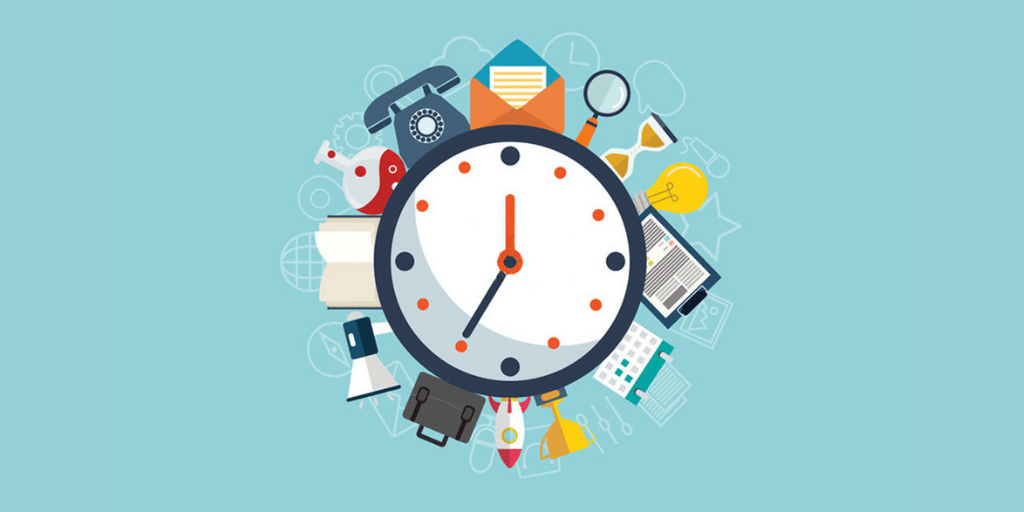To use your time more productively, effective time management is very important
Efficiency is doing the thing right. Effectiveness is doing the right thing. Peter F. Drucker
Time management – it’s a term most of us are familiar with, but a concept few of us employ. It’s easy to blame the daily onslaught of meetings, emails, phone calls and other distractions for our scattered focus and overwhelming calendars but laying blame doesn’t solve the problem. As we get ready for summer, we might struggle to find that perfect (im)balance between personal and professional commitments, so, while the temperatures rise, let’s keep our cool and learn how to manage our time, rather than the other way around.
To help get better at managing time, we can get clear on how we get the most out of it and build better habits that lead to productive and positive outcomes. Here are three tips that can help you get better and make the most of your time.
Good habits + Realistic goals = Better outcomes
Problem: A goal is only as successful as the habits that help you achieve it. Keeping the end in mind and having a signpost to your goal is critical but try focusing on the systems to help you score. Often what happens when you put your goals first and overlook the systems you develop to help you get there, you end up continually delaying your happiness until you reach a milestone.
Solution: In his book Atomic Habits, James Clear outlines how goals help with direction, but it’s the systems that lead to progress. It’s crucial, therefore, to spend time designing the systems and instead learn to celebrate the continuous small improvements that help you achieve the goal. By developing habits, you can benefit from the compound interest of endless refinement and continuous self-improvement, even if it’s just 1 percent.
Meetings, meetings, and more meetings!
Problem: Ask anyone and they’ll tell you that meetings can be the greatest time-suckers, that’s why in this next normal and hybrid/remote work environment, it’s important that you’re always overextended, double- or even triple-booked. Even with the wonders of technology on your side, it’s impossible to be in multiple places at once.
Not only is overbooking yourself unhealthy and unmanageable, but it also turns you into a bottleneck. When you can’t properly focus on a task or complete your duties efficiently, you run the risk of missing deadlines. And if you still believe multi-tasking is a skill to master, think again. Neuroscience shows multi-tasking only increases the possibility of you getting more than one thing wrong at the same time.
Solution: Set a daily intention, plan, and organize your calendar to help you stick to the schedule. Try blocking off specific times for meetings as well for deep focus. Change your schedule so you have a 5-minute buffer between back-to-back meetings and whenever, possible, communicate your availability to your clients and colleagues ahead of time.
You can also avoid accepting meetings outside of these hours unless the meeting is urgent, decline meetings you cannot make, and suggest a new time if your presence is required.
A rule of thumb: if you’re “optional” on the attendee list, contact the organizer to confirm what’s required of you. You can also delegate attendance to a colleague, ask them to take notes and report back to you later, this not only empowers them to grow and learn new skills but gives you time to get work done.
Read More: Value or Validation? Core Values in Leadership
Much ado about nothing
Problem: Your schedule is so overloaded you can’t find the time to create or do work and when you find the time, you’re exhausted, uninspired, or so distracted that you accomplish nothing of value. With most of us still adjusting to a combination of remote and hybrid work, it can be challenging to find the right mix.
Solution: Use your energy wisely and allocate it accordingly. Figure out when the best time of day is for you to work uninterrupted and then set that time aside in your calendar. Don’t answer emails and don’t accept meetings during this time frame. If you must, use a physical or virtual “Do Not Disturb” sign and disengage from any active chat sessions, you can even set your favourite chat tool to automatically forward messages to your inbox for viewing later. You might even communicate this ahead of time.
Read More: Enjoying Silence to Achieve Clarity of Focus
Bringing It All Together
Learning to effectively manage your time helps you gain more clarity, and improve productivity and focus. It also makes you a better partner, a happier person at home and a more desirable team member and leader at work. So be intentional about taking control of your schedule and encourage others around you to do the same. It creates a healthier workplace culture that starts with each of us.
In the end, we’re all accountable for adopting better habits that help us manage time more effectively, so let’s take a step in the right direction because by working together, we can help improve productivity and achieve collective results. That is not only the efficiency of doing the thing right but the effectiveness of doing the right thing.
Ask me how I can help you develop emotional intelligence
Learning to manage your time is a key step in increasing your self-awareness and developing emotional resilience, it also helps you become more proactive and productive. Ask me how my Leading with Clarity roadmap can help you develop healthier habits to lead with clarity.
